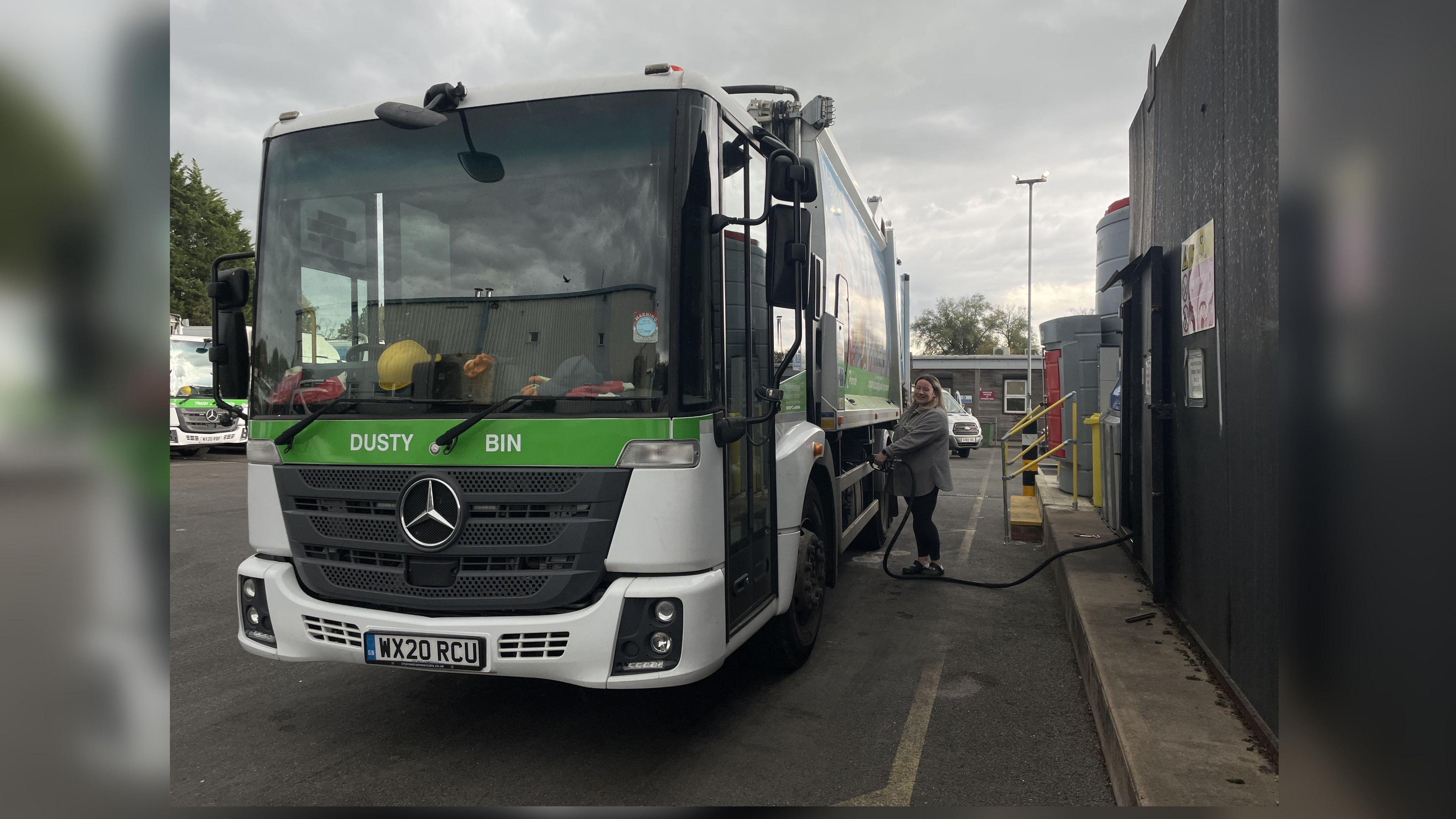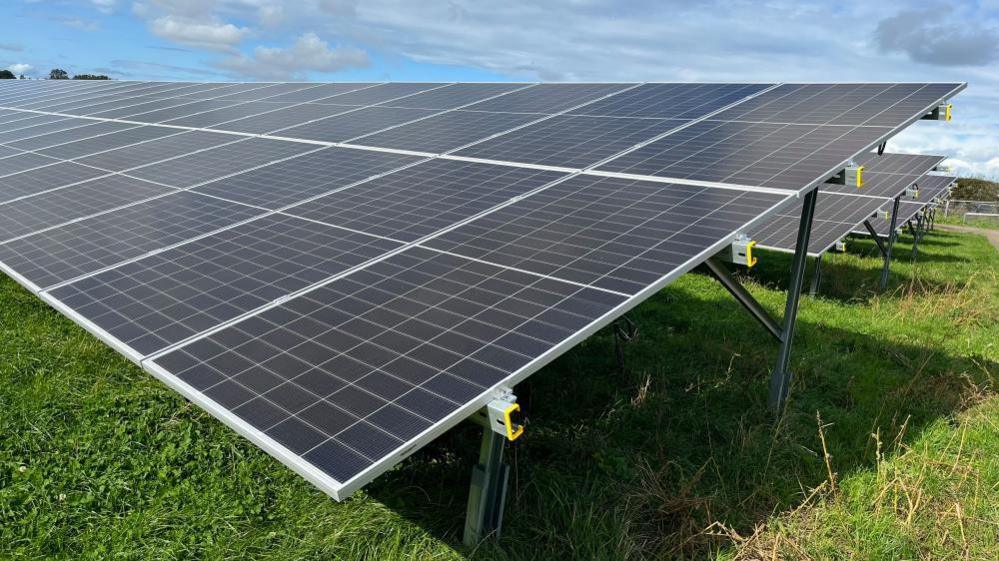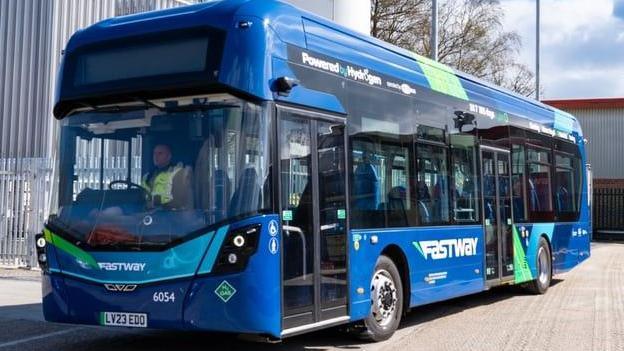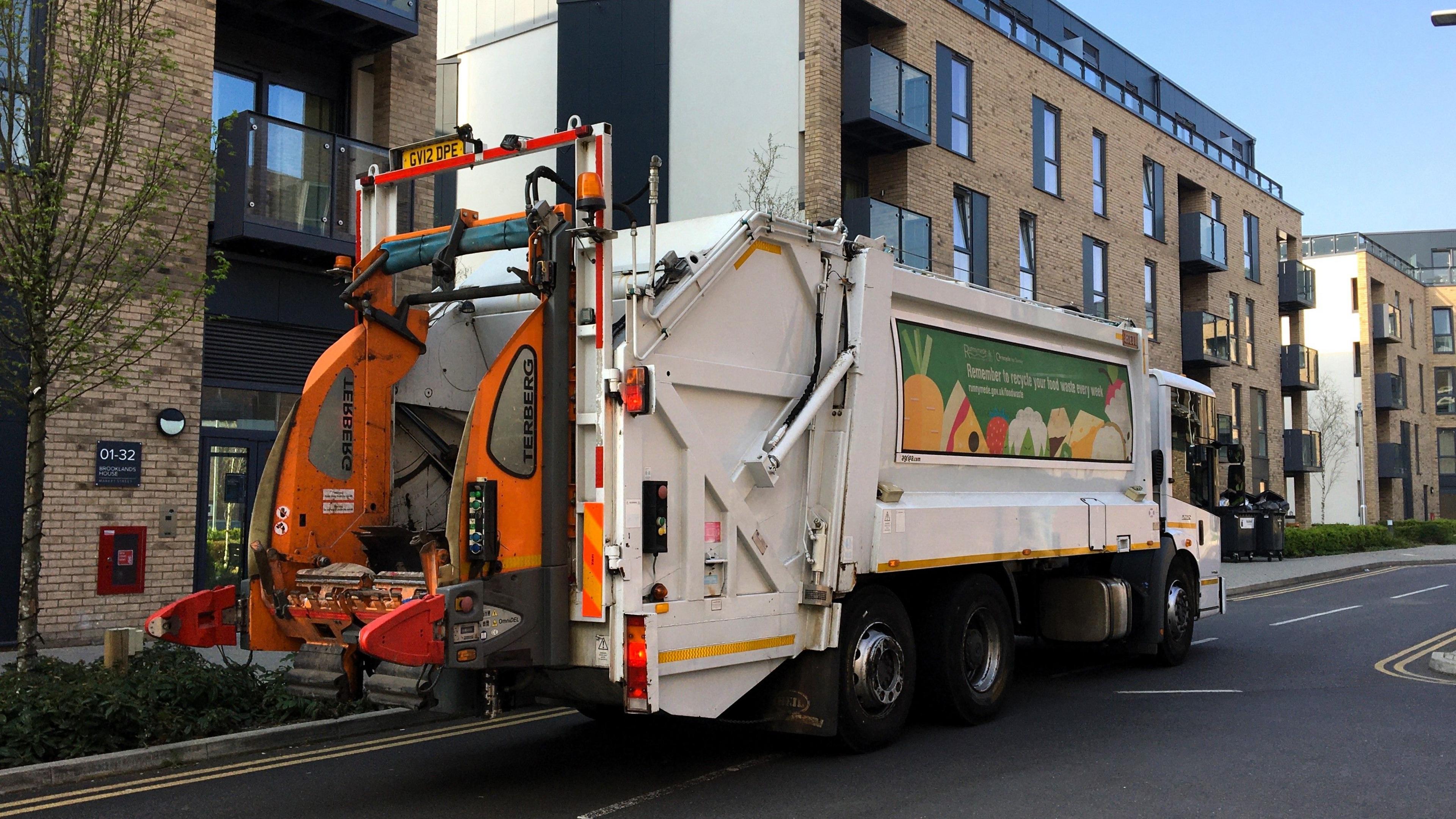Waste collection lorries now powered by biofuel

Reigate and Banstead Borough Council said 28 of its waste collection vehicles have switched from diesel to biofuel
- Published
A Surrey council has switched 28 of its waste collection vehicles from diesel to biofuel in a bid to reduce carbon emissions.
Reigate and Banstead Borough Council said the move to hydrotreated vegetable oil (HVO) is expected to cut emissions of each lorry by at least 76%.
The council estimates this will save about 500 tonnes of carbon each year, which it says is the equivalent to the amount of electricity needed to power up to 500 flats for a year.
Hannah Avery, executive member for neighbourhood services, said it would cut operational carbon emissions by at least a quarter, which was a "significant step" towards meeting the authority's net zero target by 2030.
She said the council was working to replace the rest of its fleet with electric or other low-carbon alternatives.
HVO, also known as renewable diesel, is made from waste products such as used cooking oil and is considered a cleaner alternative to fossil fuels.
Ms Avery said the switch would also improve local air quality and described it as a "socially and environmentally responsible investment".
The council approved plans to reduce emissions from its waste fleet in December 2023.
Follow BBC Surrey on Facebook, external, on X, external. Send your story ideas to southeasttoday@bbc.co.uk , external or WhatsApp us on 08081 002250.
Related topics
- Published17 October 2024

- Published7 October 2024

- Published14 March 2024
